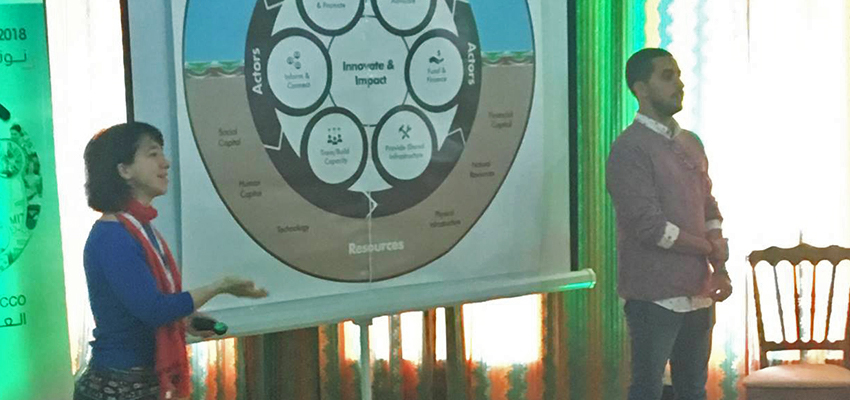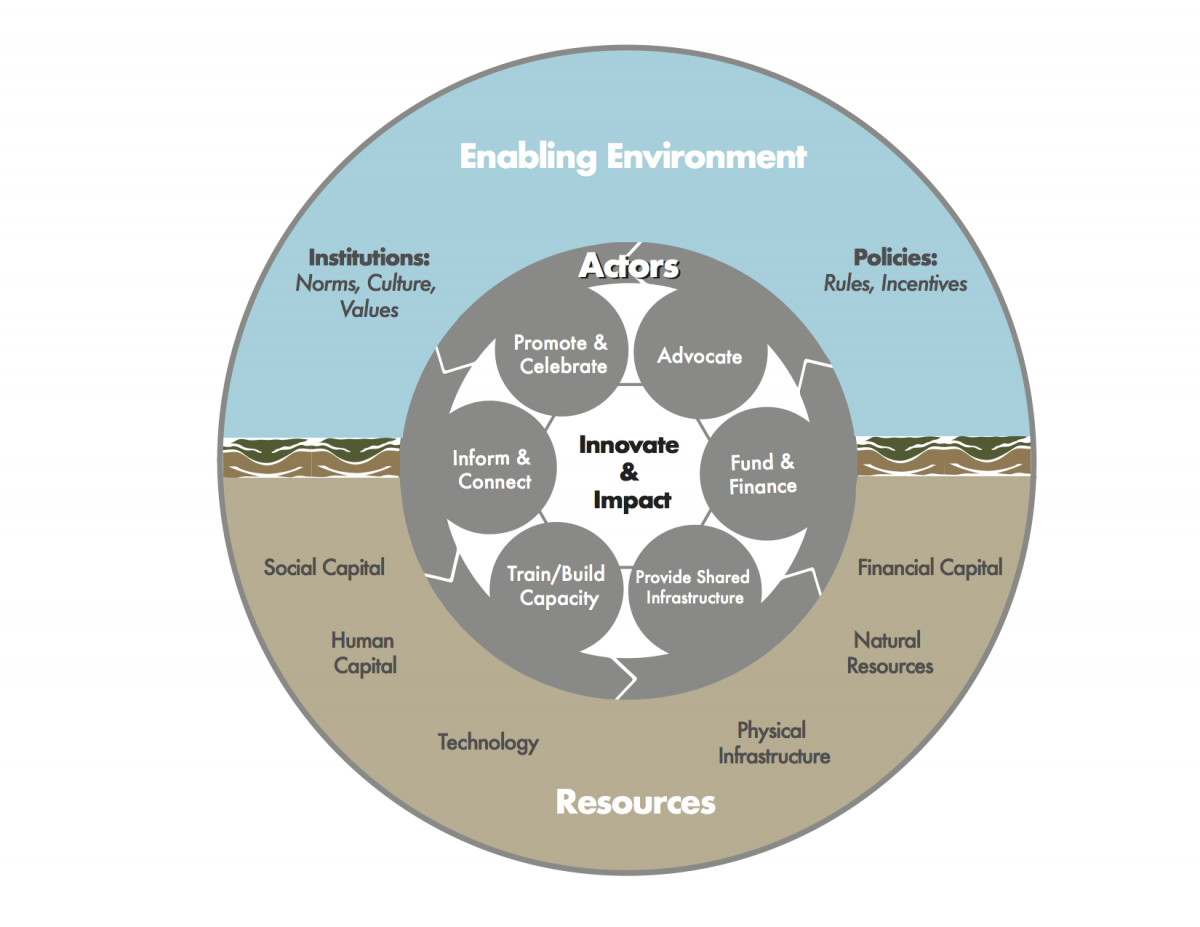
The Practical Impact Alliance Local Innovation and Entrepreneurship Ecosystems working group, in session since March and led by D-Lab’s Molly Rubenstein, has been working to develop and refine methodology on how to foster innovation ecosystems around the world. With avid participation from PIA members and other experts in the field, the group has heard from a number of different speakers on their efforts to develop innovation ecosystems.
Highlights thus far from the monthly calls include Intellecap’s Arielle Molino and Lindsay Clinton explaining the process and programs used by their company in order to develop ecosystems in India and East Africa as well as MIT D-Lab’s own research scientist in local innovation, Elizabeth Hoffecker, joining the call to discuss her studies in cultivating ecosystems and the benefits of doing so. The working group also heard from team members who had participated in the MIT Regional Entrepreneurship Acceleration Program (REAP), in particular team members from Nigeria and Chile, about their experiences on the ground working to cultivate ecosystems and from MIT REAP staff on overarching trends they have witnessed while facilitating this work.
As the working group continues to build towards an overall output, the group recently convened to decide how the upcoming PIA Co-Design Summit in Laâyoune, Morocco could provide an opportunity to apply some of the methodology being developed in the working group discussions. The output that the group is looking to create is an innovation ecosystem resource that acts as a guide for actors to use when encountering multi-stakeholder problems.
The Co-Design Summit in Laâyoune provides precisely this type of environment. The three principal goals of the summit are to disseminate the co-design methodology, to develop entrepreneurial solutions, and finally to catalyze the creation of an innovation ecosystem in the region. These objectives are set to address the lack of available entrepreneurship education and tools as well as the fragmentation that characterizes this region’s economic and innovation ecosystem. The ecosystem acceleration facet of the summit allows for an interesting case study for this working group. There will be 14 PIA members participating in the Co-Design Summit, and they will have the opportunity to practice a hands-on application of the methodology in the realm of enterprise creation with young entrepreneurs from Morocco.
The plan for the summit is to first work on setting up a framework for the participants and establishing shared goals and objectives. As seen in the graphic below, the ecosystem model is divided into the enabling environment and the resources that can be used for innovation. During this process, the participants will try to identify gaps and areas for improvement in the ecosystem in order to facilitate entrepreneurship. Next, the participants will move on to problem identification and mapping, which will look at how to improve the ecosystem and the problems that an entrepreneur might encounter during their process. Lastly, there is problem framing, which will be the final product of this process, containing a problem statement, a vision for the future, and the commitments that must be made in order to accomplish this.

In all, the Local Innovation and Entrepreneurship Ecosystems working group is moving forward on their output to facilitate the cultivation of local innovation ecosystems, and the PIA Co-Design Summit 2018 comes at a perfect time for this working group to apply and test its methodology.

